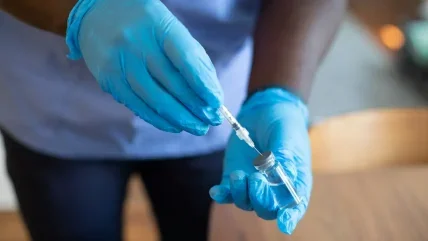
Eli Lilly and Company (Lilly) has received Egypt’s Drug Authority approval for the insulin glargine injection, manufactured by its Egyptian partner EVA Pharma.
In 2022, EVA Pharma and Lilly partnered to manufacture and supply high-quality human and analogue insulin to at least one million people in low- to middle-income countries (LMICs).
Lilly said the collaboration is part of its 30×30 initiative, which aims to improve access to quality health care for 30 million people living in resource-limited settings annually by 2030.
EVA Pharma CEO Riad Armanious said: “Localising essential medicines is the key to driving equitable access to healthcare. It takes bold collaboration, cutting-edge innovation, and tech-driven manufacturing to turn this vision into reality.
“Our collaboration with Lilly shows what’s possible when we push boundaries together. This is just the beginning, we’re on track to impact over a million lives annually across 56 countries, making a real difference for people living with diabetes.”
As part of the partnership, Lilly has been supplying its active pharmaceutical ingredient (API) for insulin to EVA Pharma at a significantly reduced price.
Also, the US drugmaker is providing pro-bono technology transfer to enable EVA Pharma to formulate, fill and finish insulin vials and cartridges.
Furthermore, Lilly and EVA Pharma are working with the World Health Organisation (WHO) to secure WHO pre-qualification for the locally manufactured human insulin injection.
Lilly International executive vice president and president Ilya Yuffa said: “For more than a century, Lilly has been at the forefront of diabetes care, offering innovative solutions that make life better for people around the world.
“Our collaboration with EVA Pharma furthers our commitment to providing sustainable and accessible medicines worldwide.
“We will continue to work with global health systems and industry stakeholders to address systemic barriers to healthcare and expand equitable, affordable access to our medicines to transform more people’s lives.”
In a separate development, Lilly has received China’s National Medical Products Administration (NMPA) approval for Kisunla (donanemab-azbt).
NMPA approved Kisunla in 350mg/20mL injection formulation for IV infusion every four weeks to treat adults with early symptomatic Alzheimer’s disease (AD).
The indication includes people with mild cognitive impairment (MCI) along with people with the mild dementia stage of Alzheimer’s disease who have confirmed amyloid pathology.
The NMPA approval was based on the efficacy and safety data from the Phase 3 TRAILBLAZER-ALZ 2 clinical study.
Eli Lilly and Company executive vice president and Lilly International president Ilya Yuffa said: “Bringing Alzheimer’s disease treatment options to the people facing its devastating effects is critical.
“Patients and their families want and deserve access to treatment with amyloid targeting therapies, which could give them more time to do the things that matter most to them in the early symptomatic stage of the disease.
“Kisunla continues to demonstrate very meaningful results for people with early symptomatic Alzheimer’s disease and can now help to improve the standard of care for people living with the disease in China.”






